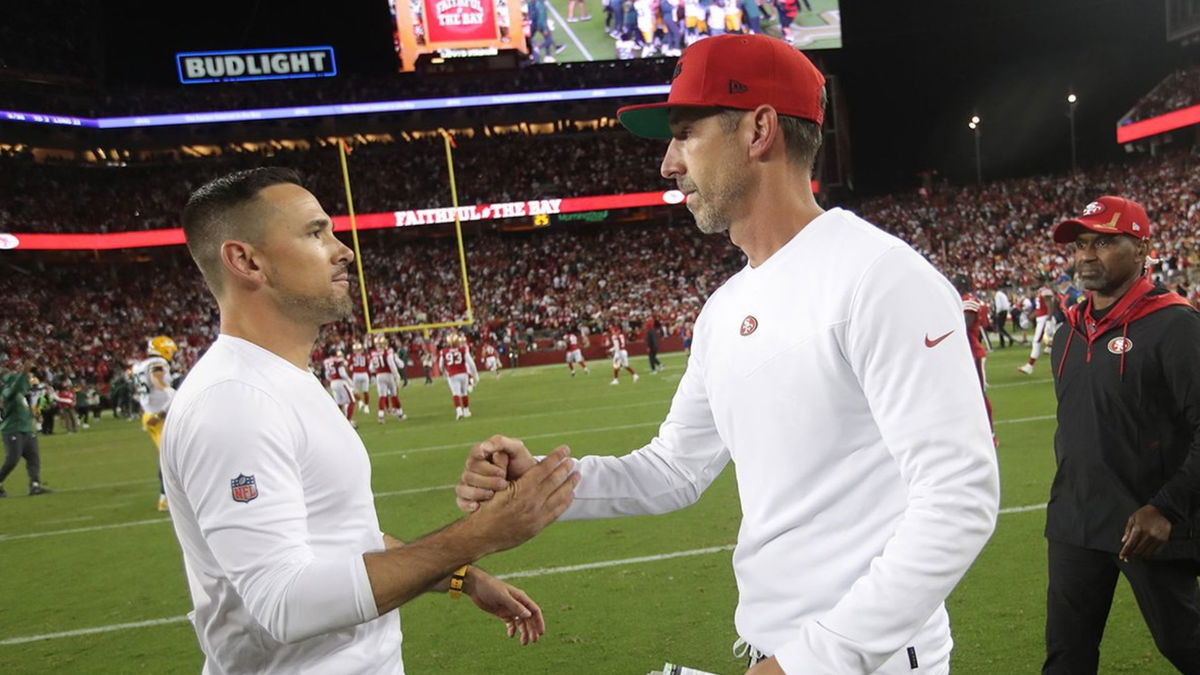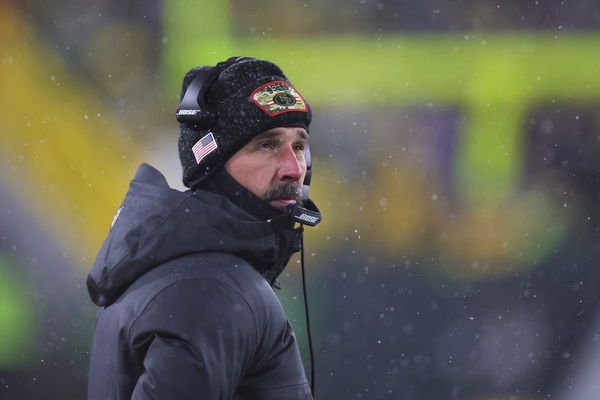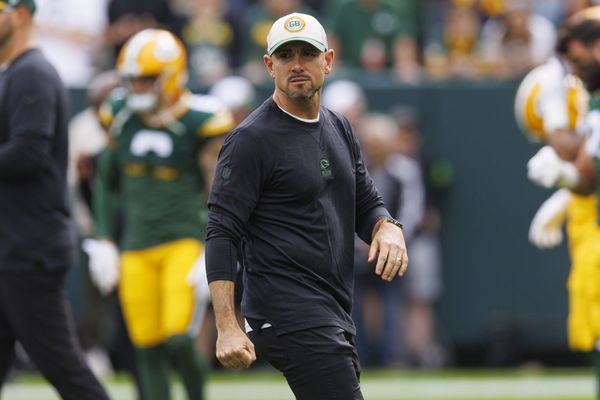

The San Francisco 49ers‘ Kyle Shanahan didn’t hold back when addressing the NFLPA’s proposal to eliminate offseason team activities (OTAs) in favor of an extended training camp. Drawing from his experiences as both a player and a coach, Shanahan unleashed a passionate critique, citing concerns over player development, safety, and the importance of a structured offseason regimen.
Watch What’s Trending Now!
“Eliminating an offseason so you can have a seven-week training camp doesn’t, isn’t the best idea to me,” Shanahan stated firmly to pressers today, echoing the sentiments of coaches who’ve been through the grind. “They used to do that, but they did seven weeks cause people didn’t make as much money, and in the offseason, they had other jobs.”
Shanahan’s argument hits at the core of the issue – the need for a continuous, balanced approach to preparation. In his view, cramming everything into an extended training camp is a recipe for disaster, akin to the infamous “Hell Week” of football lore. “You don’t just get better in that training camp right before the season,” he emphasized, drawing from his experiences as a former player.
ADVERTISEMENT

Getty
(Photo by Stacy Revere/Getty Images)
The veteran coach’s concerns align with those expressed by Browns star Joel Bitonio, who believes the proposed change could come down to a battle between science and schedule. As Bitonio stated during the Browns’ annual charity golf outing at Westwood Country Club, “If you push it back, you have this four- or five-month offseason where you could take a month off, you can start slowly working into it and then get ready to go and then once you show up at the end of June or early July, then you have a three-week period of not really training camp practices but like an offseason program where they can kind of ramp it up.”
Beyond just the physical toll, Shanahan expressed concerns about the potential increase in soft tissue injuries if players don’t have proper guidance during the offseason. He cited the 49ers’ proactive approach, stating, “We’ve altered our program over the last seven years, what we do on day one, day two, day three… so that’s why the soft tissue injuries do get better.”
ADVERTISEMENT
Shanahan’s worries extend to the development of new talent, fearing that eliminating OTAs could make it tougher for undrafted players and rookies to hit the ground running. “You just don’t have the time to invest in the process and learn the playbook,” he said, echoing the age-old adage that success in the NFL requires more than just physical prowess.
ADVERTISEMENT
Matt LaFleur’s COVID memories remind why rushing back to a season without OTAs is a mistake
Green Bay Packers Matt LaFleur shares Shanahan’s apprehensions, and his reasoning stems from a painful memory – 2020 COVID-19 season when OTAs were scrapped due to the pandemic. “I go back to the COVID year (without OTAs), I don’t think that was good for anybody,” LaFleur lamented to pressors, sounding like a coach who’s been through the trenches.

ADVERTISEMENT
Without those crucial offseason activities, LaFleur witnessed firsthand how it hindered player development, especially for the undrafted guys trying to make their mark. “You just don’t have the time to invest in the process and learn the playbook,” he echoed Shanahan’s sentiments, underscoring the importance of those reps in a league where the margin for error is razor-thin.
Top Stories
NFL Announces Punishment for Shedeur Sanders Incident

Ex-NFL GM Tore Up Antonio Brown’s Contract & Nullified Guarantees After Wild Helicopter Incident

NFL Announces Final Punishment Decision for Patrick Mahomes Incident Against Texans

NFL Announces Punishment For Jared Goff Incident After Verdict on Cowboys Star

Zac Taylor Receives Unfortunate $56.5M News on Trading Away Joe Burrow Amid Bengals QB’s Frustrations

But LaFleur’s concerns extend beyond just the rookies; he believes the lack of OTAs hampered team chemistry and playbook installation for the entire squad. “OTAs aren’t bad. You get to come in and get to be around the guys. You put in work on the field, but you get to build that bond, that chemistry. That’s what you need to go far in the playoffs,” he explained, echoing the sentiments of players like Bills wide receiver Curtis Samuel.
ADVERTISEMENT
LaFleur’s COVID memories serve as a stark reminder of why rushing back to a season without OTAs could be a costly mistake, akin to trying to run the “hurry-up offense” without proper preparation. A balanced offseason schedule, he believes, is essential for maintaining the quality of the game and ensuring player readiness – something the NFLPA’s proposal seems to overlook.
As the debate rages on, reminiscent of the classic “us vs. them” narrative in football movies, coaches like Shanahan and LaFleur aren’t backing down without a fight. They’ve been through the grind, and they know what it takes to keep their players safe, sharp, and ready to “take it to the house” when the season kicks off.
ADVERTISEMENT
ADVERTISEMENT
ADVERTISEMENT

